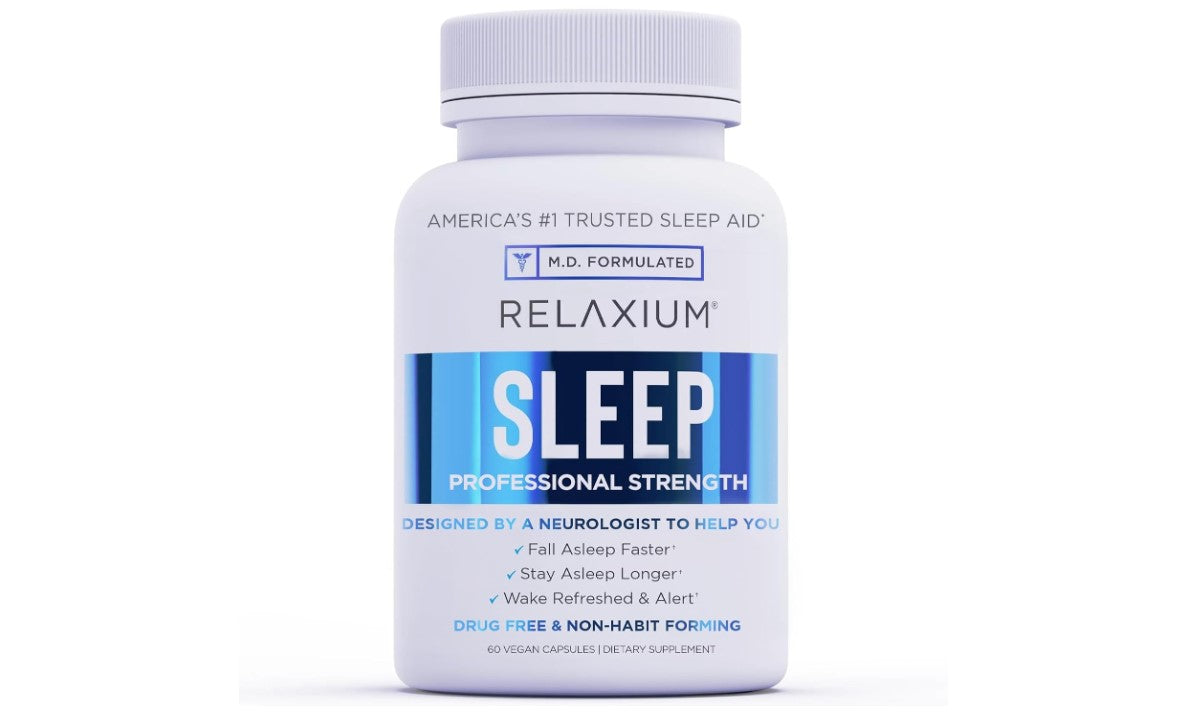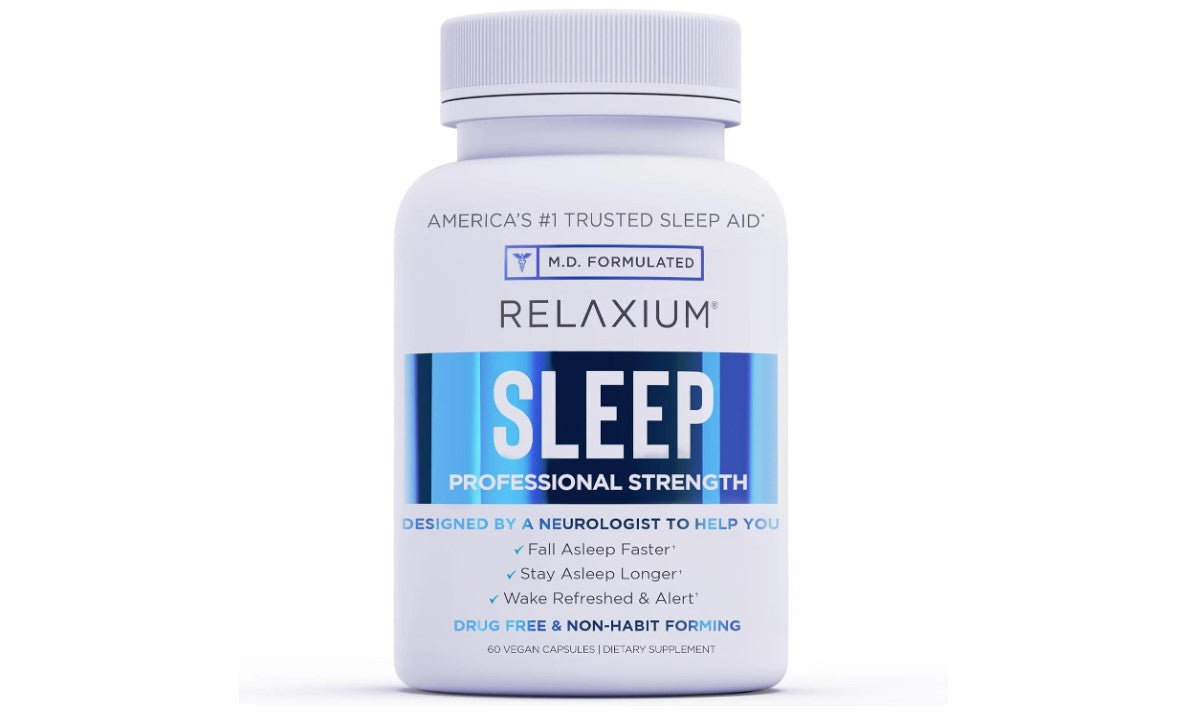
Our Experience With Relaxium Sleep
Our Experience with Relaxium sleep was reasonably positive, it definitely does have an impact, although Jean our member of the team who regularly uses sleep supplements did say it wasn't as effective as RestAgain in particular. This isn't surprising seeing as the Relaxium alternative contains nearly double the dosages of most of the active ingredients.
Is Relaxium Worth It?
It's certainly not a bad product, but as above if you can get RestAgain, you'd be much better off doing so as it's double the dosage and comes in at a lower price point.
Are There Relaxium Side Effects?
There can be some side effects from relaxium sleep due to the presence of melatonin and gaba, both of which can lead to drowsiness and in rare cases vivid dreams. Then there is also the issue with passionflower, which can cause daytime drowsiness as well. In theory if you take Relaxium as recommended 30 minutes to an hour before going to sleep this should not be an issue.
Is Relaxium Sleep habit-forming?
There is currently no evidence that relaxium sleep is habit forming.
Relaxium Sleep Ingredients
L-Tryptophan - 500mg L-Tryptophan is a type of amino acid that is involved in the process of creating serotonin and melatonin. L-Tryptophan has been shown to help with that it can help with insomnia [1], and there is some evidence to support it's use for depression, and anxiety. There are some claims that it also helps with weight loss and muscle recovery although this is likely due to it improving sleep quality which has this effect. Typically speaking L Tryptophan is dosed at around 1 to 4 grams with 500mg being below the most studied dosages, some trials have shown it to be effective at 500mg, but severely reduced and some have shown it doesn't work in this range at all. There are better ingredients in relaxium sleep that could've used this capsule space. Better sleep aids typically use 5htp in place as they are both converted in the same way, but 5htp usually only requires 100-200mg to be effective.
Valerest 228.9mg - Valerian Root & Hops doesn't really need to be in a blend together, this is just a gimmick only serving the purpose of hiding that at least one of these ingredients is likely underdosed. Valerian Root is OK as sleep aids go [2], although it does induce nausea in some people. Oddly for others it's actually quite good at reducing bloating and gas, so that's a bit of a toss up. The problem is that typically you'd want it to be dosed at 200mg, meaning that if it's dosed correctly there isn't enough room for hops to be properly dosed to promote sleep. The more intresting thing here is that whilst hops extract contains alpha-humulene, beta-caryophyllene, myrcene, linalool, and other terpenes that are responsible for sedative effects, it needs to be dosed in the grams, not 28mg which we suspect is what's actually in Valerest. So not a great inclusion. The valerian root is fine though (assuming it's properly dosed here and that the hops is just a tack on to make it sound like relaxium sleep aid has an extra ingredient.
Ashwagandha 125mg - This is perhaps the biggest dissapoiuntment, it could've been a great ingredient for the sleep aid. Ashwagandha has been shown to be effective at improving sleep quality and reducing stress in double blind studies, the catch is that the typical dose is usually around 600mg [3] and a minimum of 300mg, which is quite a long way off what we have in relaxium sleep. Unfortunately this means it's likely to be ineffective.
GABA 100mg - GABA is short for gamma-aminobutyric acid. It is a neurotransmitter that is found in the brain and spinal cord. It regulates the activity of cells in the brain, which helps to promote relaxation and reduce stress. It has been shown to promote deep sleep [4], but it does not actually put one to sleep. GABA has also been shown to have some benefits for anxiety, depression, and migraines making it a common ingredient in a lot of nootropics especially as it has no impact on drowsiness. The problem that we have with the dose in relaxium sleep is that GABA is most effective in dosages over 200mg and up to 500mg, meaning once again we don't have enough here, so it's another point towards being a negative relaxium sleep review.
Chamomile extract 75mg - Chamomile is a plant that has been used for centuries to help people in various ways. It has been proven to help people sleep better and calm their nerves, promoting relaxation, but there's a catch, it's been proven when consumed as a tea, it makes it into a lot of sleep health supplements, but there's not much evidence to support it in supplements. [5]
Passionflower 75mg - Passionflower is another middling sleep aid as well. It's more of an old wives tale than a well studied ingredient with the main evidence supporting it being in relation to anxiety rather than as a direct sleep aid. It's within a safe range, although is not recommended to be taken during pregnancy, it's just not a great ingredient. [6]
Melatonin 5mg - melatonin, which is a natural hormone produced in the human brain. Melatonin regulates your sleep-wake cycle. It is produced by the pineal gland in the brain. It's very well backed and is often prescribed as a sleep aid in many countries. 5mg is within the effective range of 3mg - 10mg. [7]
Resources:
https://www.ncbi.nlm.nih.gov/pmc/articles/PMC6836118/
https://www.nccih.nih.gov/health/melatonin-what-you-need-to-know
https://www.ncbi.nlm.nih.gov/pmc/articles/PMC2995283/
https://www.nccih.nih.gov/health/passionflower
https://www.ncbi.nlm.nih.gov/pmc/articles/PMC4245564/
- Choosing a selection results in a full page refresh.
- Opens in a new window.
